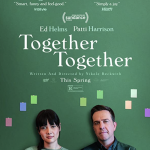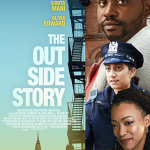Were you to employ any sense of logic to Frank Borzage’s History is Made at Night it would fall apart like a tissue paper house in a hurricane. A silly, unapologetically sincere concoction, the film isn’t one you’re supposed to think too hard about – you’re to let it wash over you, sweep you away on the wave of romantism it creates, buoyed by the conviction of its cast. And while it’s not nearly as well-known as Love Affair, Casablanca or Now, Voyager, you can trace key moments from those classics back to History not only in terms of plot, but in its tone and the fact that the couple is required to make a noble sacrifice in pursuit of true happiness.
In a meet cute for the ages, beleaguered socialist Irene Vail (Jean Arthur) and head waiter Paul Dumond (Charles Boyer) cross paths when he saves her from her psychotic husband Bruce (Colin Clive), who has put her in a compromising position, by pretending to be a jewel thief and “kidnapping” her in order get her out of his clutches. If you think this is overly complicated, you’d be right but you should know this is perhaps the most logical sense of circumstances in the story. Before the remainder of its brisk 97 minutes has played out there will be a murder, multiple Transatlantic crossings taken at the drop of a hat, a great many plot points expediently covered through headlines in society columns, a suicide, a tragedy of titanic proportions and, of course, a passionate love affair that defies reason.
In the end, none of this means anything – this is an exercise in shifting tones that Borzage handles without breaking a sweat. Going from unabashedly romantic to highly comic to overtly melodramatic to sincerely tragic, History makes no apologies for trying to cover as many disparate tones in one film as possible. (Not plausible, but possible…) Following its own internal logic, the odd series of events that occur make sense, one outlandish circumstance feeding off the other, building a momentum that’s impossible to resist – it’s so damn audacious and silly, you just have to hang around to see what Borzage has up his sleeve.
While the filmmaker’s ability to deftly manage some many styles is crucial to the movie’s success, without the ability of three key players at its center to shift with the plot, History would have been doomed. It’s hard to imagine Boyer and Arthur as a convincing romantic couple – her persona that of a cynical, urban American; his, the cultured, urbane Frenchman – yet somehow it works. He delights in gently teasing her, winning her trust by offering a sympathetic ear, validating her with his sincere attention and showing his affection for her with his eyes. Arthur literally blossoms on screen whenever Boyer is near, her smile beaming with the power of klieg light yet also in the way she surrenders to him, finding in his arms not only a place of refuge but a repository of strength. You can’t take your eyes off them and more than anything – the key to success of any romantic film – you WANT them to be together.
It would be criminal to overlook Leo Carrillo, a B-movie actor who would later find fame as Poncho in the 1950’s television series The Cisco Kid. As Paul’s best friend, the egotistical chef Cesare he steals every scene he’s in, whether throwing a temper tantrum when insulted, reeling off a string of Italian gibberish or mangling the English language (When he and Paul take in the Manhattan skyline while sailing into the Big Apple he proclaims, “Look at those Skywipers!”), the actor’s manic style compliments the calm sense of cool Boyer wears like a second skin. However, Carrillo was no one-trick pony, as evidenced by a scene late in the film, in which he despairs for the couple in question, delivering a quiet, yet passionate prayer for their safety.
Poor Clive is given a thankless role and to his credit, he plays it to the hilt, manic in his rendering of Vail’s all-consuming jealousy. The two times he grabs Irene by the throat, you’re convinced he could throttle her to death without a second thought, yet it’s his ego that holds him in check. Clive is a rather tragic case here, suffering from the alcoholism and tuberculosis that would kill him, his ill-fitting suits giving away the fact that his skeletal frame could barely fill them out. There’s a cloud of inevitable doom hovering about him and his fate would be sealed shortly after he completed filming. He would die at the age of 37, just before History was released in theaters.
And while the film is hokey and improbable, its story a collection of self-consciously silly moments, there is a scene rendered with such raw emotion, it cuts through Borzage’s artifice and goes straight to your heart. When the ocean-liner the couple is on runs into an iceberg and is on the verge of sinking, Paul finds a spot for Irene on the last remaining lifeboat and forces her to get on it. However, as it is lowering, she leaps off to be in his arms, content to die with him if need be. Boyer’s reaction in this moment is heart-rending, a sincere cry of anguish and despair that conveys a genuine sense of love and passion that transcends the melodrama. It is the only real moment in this ridiculous concoction and Boyer’s willingness to invest it with the emotion he does elevates the film in this single moment.
With its release as part of the Criterion Collection, here’s hoping History finds the proper audience it has so long deserved. Sporting a 4K digital restoration, the film looks as good as any black-and-white film from the mid-‘30’s, while the supplements in this edition- which includes multiple interviews about and with Borzage- help put the movie in its proper context. So much of what Criterion does concerns preservation and it is a cause of celebration that History is Made at Night has been made a part of this collection, so that others might discover this unique work, one in which romance conquers all, whether it has to overcome a maniacal husband, a false murder charge or a rogue iceberg.




